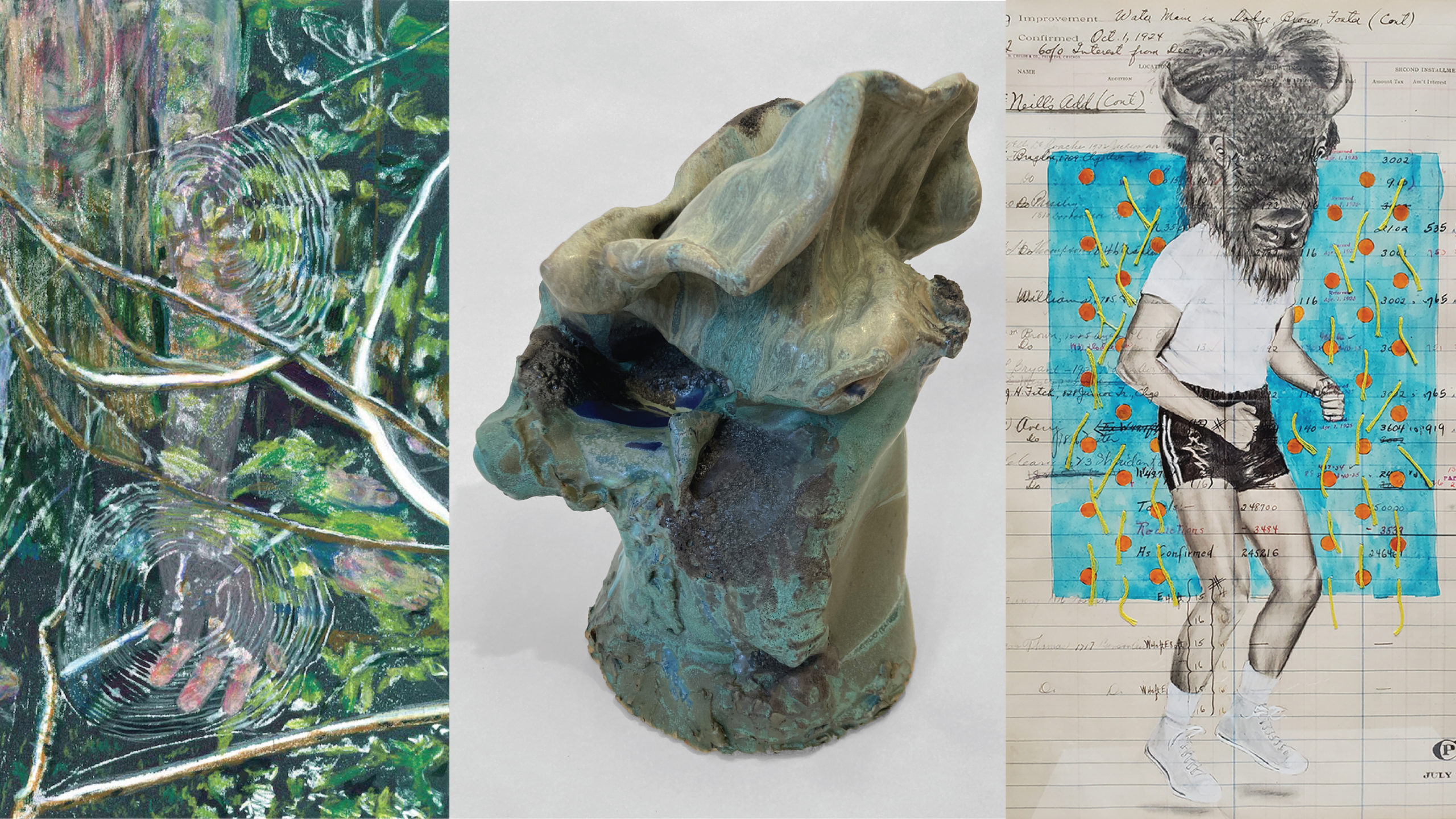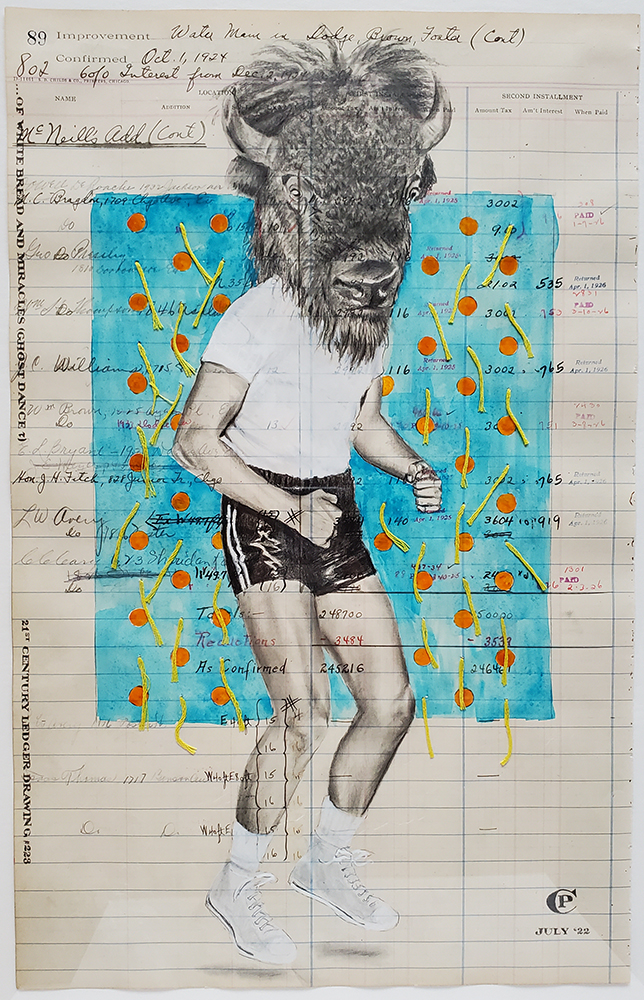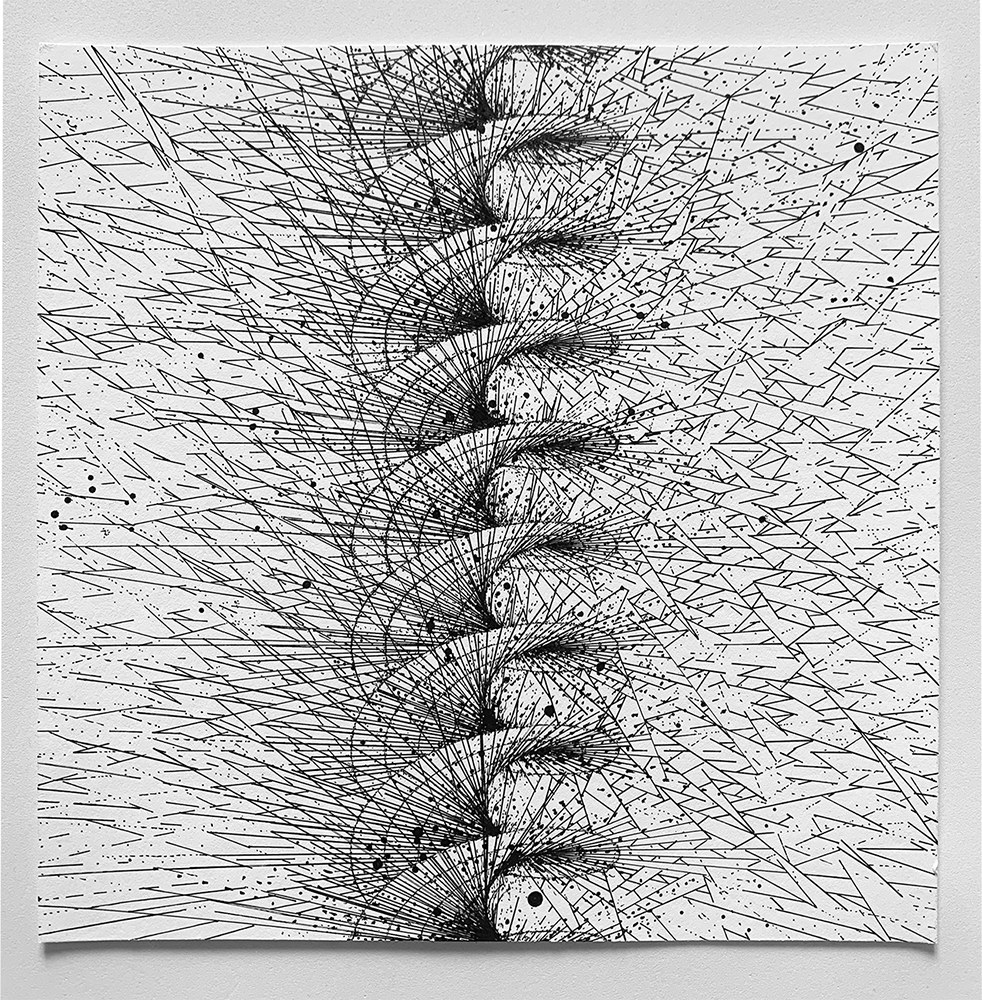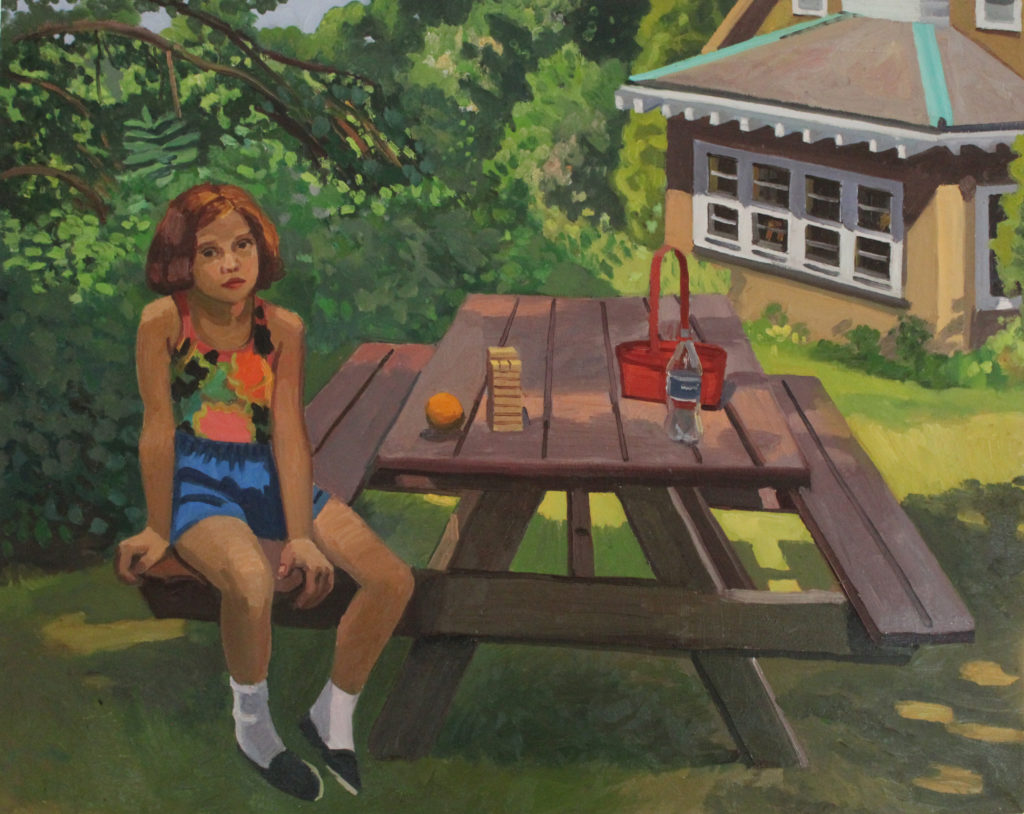 Images courtesy of the artists
Images courtesy of the artists Images courtesy of the artists
Images courtesy of the artistsJuried and curated by Erin Genia
This year’s Drawing Show is Yušká: Uncoil. In the Dakhota language, the word Yušká means: to untie, release, uncoil, loosen, set free. Its meaning can range from the simple untying of a knotted rope, all the way to a philosophical undoing of political, economic and social constructs.
List of Artists:
Ryan Aasen, Constanza Alarcon Tennen, Crystal Bi, Geoffrey Booras, Kameko Branchaud, Stephanie Cardon, Darius Carter, Mayté Castillo, Woosik Choi, Leah Craig, Tanya Crane, Mark Hernandez-Motaghy, Corazon Higgins, Elizabeth James-Perry, Ashley Jin, Alex Kalil, Iwalani Kaluhiokalani, Lucien Dante Lazar, Andy Li, Patte Loper, Evangelina Macias, Robbie Moser-Saito, Marie Zack Nolan, Sheila Novak, Chris Pappan, Crater Powers, Kiara Reagan, John Ros, Mica Rose, Meg Rotzel, John Roy, Michelle Samour, Homa Sarabi, Bryan Shea, Mimi Silverstein, Susanne Slavick, Sarah Slavick, Michelle Stevens, Michael Talbot, Vivian Tran, Ananth Udupa, Margaret Inga Urîas, Jael Whitney, Adam Wise and Erin Woodbrey.
Opening Reception
Friday, May 17 | 6–9pm
BCA Mills Gallery, 551 Tremont St., Boston, MA 02116
Join us for the public opening reception for BCA 27th Drawing Show — Yušká: Uncoil, 6-9pm in the Mills Gallery. Concurrently, next door from 5–8:30pm, there’s an open house in the Artist Studios Building holding our BCA Studio Residency.
About The Exhibition
BCA 27th Drawing Show — Yušká: Uncoil | Juried and curated by Erin Genia
On view: May 11–August 3, 2024
In the Dakhota language, the word Yušká means: to untie, release, uncoil, loosen, set free. Its meaning can range from the simple untying of a knotted rope, all the way to a philosophical undoing of political, economic and social constructs.
Life is sustained by Earth and everything we do is the result of our connection to the lands we live on. This basic reality has been lost to most, but it is central to Dakota cosmology. All cultures of the world stem from Earth-based ways of living, and for the past couple centuries, those ways have been targeted for erasure and nearly destroyed by dominant societies, but we remain Earth-based beings.
Artists’ unparalleled ability to speak to the intangible gives them a singular way of addressing inequities and presenting visions of a better world. This power, alongside fluency in the creative process, can be a catalyst for social change that aligns with the Dakhota word Yušká. The crises of climate change and ecological destruction are the result of the same cultural dynamics that are intertwined with economic inequality and the injustices of racism. Beginning with Yušká, how can artists honor the agency of the Earth and our place in it? How can we devote our creative work to unraveling the immense knot formed by harmful ideologies that threaten the web of life?







